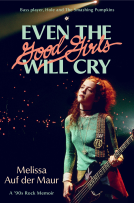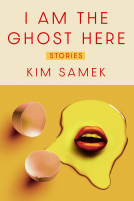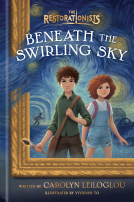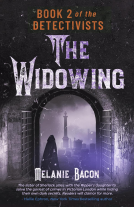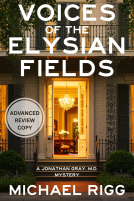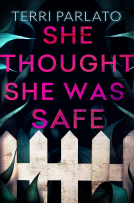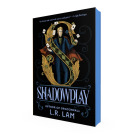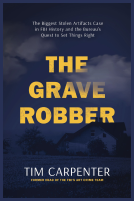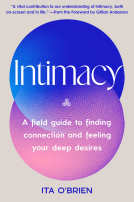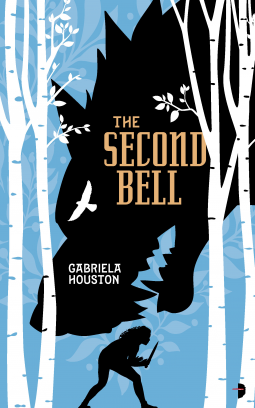
The Second Bell
by Gabriela Houston
This title was previously available on NetGalley and is now archived.
Send NetGalley books directly to your Kindle or Kindle app
1
To read on a Kindle or Kindle app, please add kindle@netgalley.com as an approved email address to receive files in your Amazon account. Click here for step-by-step instructions.
2
Also find your Kindle email address within your Amazon account, and enter it here.
Pub Date Mar 09 2021 | Archive Date Feb 09 2021
Talking about this book? Use #TheSecondBell #NetGalley. More hashtag tips!
Description
In an isolated mountain community, sometimes a child is born with two hearts. Such a child - a striga - is considered a dangerous demon, which must be abandoned on the edge of the forest to protect the community. The only choice the child's mother can make is whether to leave her home with her infant, or stay behind and try to forget.
Miriat made her choice. She and her nineteen-year-old striga daughter, Salka, now live a life of deprivation and hardship in a remote village, where to follow the impulses of the other heart is forbidden.
But Salka is headstrong and young, and when threatened with losing everything, she is forced to explore the depths of her true nature, testing the bonds between mother and child.
File Under: Fantasy [ Breaking Taboos | Hidden Shadows | Hungry Like the Wolf | Slavic Story ]
Available Editions
| EDITION | Other Format |
| ISBN | 9780857668905 |
| PRICE | $14.99 (USD) |
| PAGES | 400 |
Links
Average rating from 51 members
Featured Reviews
This is a really beautiful, harrowing, and magical book. I could read an entire anthology of stories akin to this!
Despite a lot of rough edges, I found 'The Second Bell' to be very readable, and I finished it in no time!
The central concept of the striga is from Slavic mythology, and Houston does it great justice. It's a simple, almost beautiful creation - sometimes people are born with two hearts, and two souls, one of them a shadowy magical being that must always be kept in check lest the person become an evil stigoi.
The story begins in the most intriguing of ways - a woman being exiled from her village with her baby. I loved the pacing with which the author answered my questions as I read, smoothly introducing the world of the strigas piece by piece.
The plot itself is more uneven. While the striga concept and the characters Salka and Miriat (Miriat most of all!) compelled me to keep reading, the author's hand was all too plain to see in the events and characters' actions. Dran serves as one villain, though the addition of another in the form of Kalina didn't work, and neither did Alma's choices/introspection. Salka herself, at one point, suddenly and quite randomly gives in to her second soul despite all her previous determination not to. There was also a total lack of foreshadowing of the natural disaster that sets the stage for the final act; it really came out of nowhere, and would have felt a lot less convenient if characters had discussed the possibility of it.
Criticism aside, I am glad to have read the book - Houston has a huge amount of promise (but could probably do with a better editor). And the final sentence was simply exquisite!
(With thanks to Angry Robot and NetGalley for this ebook in exchange for an honest review)
 Reviewer 695206
Reviewer 695206
This book world is so rich, it not heavy on plot. But the story telling is amazing and you will get lost in the story.
The characters are not completely developed for me to be fully invested in, but their bonds are. The connection that flows between the villagers, the lore, the strigas is so rich. You just feel like someone is telling you a story when reading this.
The Second Belly by Gabriela Houston is a fascinating book that offers a quick glimpse into the mythology and legends of a culture that, other than the Witcher series, has been largely passed over in traditional SFF. Her writing has almost a spoken word sensation; there were times that I felt like I was being told a story or fable that had been carried down from my grandparents. However, this style does evoke almost a child-like quality to the story; that isn't to say the topics are immature or not full formed. Houston's characters deal with loss, betrayal, and the threshold of adulthood and maturity, with their growth evident as the tale progresses. All in all, The Second Bell is a great "dipping in your toes" SFF book - the supernatural, while important to the story, isn't explained to death, and the characters and their interactions are allowed to shine the brighter for it.
In Heyne Town babies are sometimes born with two hearts. Two hearts mean that the baby is a Striga. The mother faces a choice then. There are three options: to kill her baby, to abandon her baby by the hope tree and hope that others of its kind will find it, or to take her baby and leave the town forever. Miriat is one such mother. She makes the choice. She names her baby Salka and leaves Heyne Town behind to take Salka to the Striga village hidden in the forest. There they receive an uneasy welcome and live an uneasy life; for the Striga’s trust no one, not even themselves. Because if a Striga gives in to the power of their second heart then they become a Stigoi and everyone knows that Stigoi are evil demons who feed off life itself.
Exile stemming from a distrust of magic is an age old trope, but Gabriela Houston manages to make it feel new. As a concept the idea of the Striga and Stigoi is simple, but with an overwhelming potential which at times is only hinted at. Having them live together in a village of destitute exile makes for a tense and rewarding setting. The Striga tribe is both elite in its community togetherness and regressed in the ease with which they turn against their own at the first hint of trouble. It makes for an interesting conflict where the ‘fight or flight’ instinct is constantly warring.
All of Houston’s characters are impressively distinct; from Miriat’s overprotective loyalty, to Dran’s harsh desperation, to Salka’s stubborn restlessness. Even characters introduced only briefly have easily recognisable personality traits to define them as realistic individuals. In fact one of my favourite characters was Salka’s pet falcon, Munu, whose behaviour towards Salka and others, driven by almost human seeming emotions, made for an endearing character.
The pace of this novel was perfect, with a slow building momentum, until the very end events which I felt were a bit too rushed for me to fully appreciate. I would have liked more time to process the consequences of one large conflict before moving straight on to the next one. The speedy pace did keep me hooked on the narrative and unable to put the book down, although I did find that I had to keep backtracking and rereading parts to make sure I was fully understanding each event as it unfolded. In contrast, the earlier events in the book bled into one another with an easy progression which made for easy reading.
Overall, it was the characters and the anticipation of magic which kept me gripped as I read this book. Mostly it was Salka’s very human choices, paired with her very inhuman struggle, that made me love this book
What an interesting reading. A story where people can be born with two hearts-striga- and they're considered abominations. WHAT?! I can't remember the last time I've read something like this. Miriat and Salka are an interesting pair. They each need each other in other ways. The plot held my attention, so I didn't have an issue reading this book in one sitting. Characterizations were well written. I thoroughly enjoyed this novel!
 Grace V, Reviewer
Grace V, Reviewer
Stunning and rich world created by Gabriela Houston that may have started off a little slow, but definitely picked up after a few chapters. I adored the Slavic influence, the morally grey characters and the fallible MC, whose journey was something I continually wanted to go back to.
I've struggled with reading books for a long time recently, mostly coming back to them in bits and pieces, but one night I read The Second Bell for three hours straight, well into the early hours, and if that's not a review in of itself for the book, I don't know what is!
After hearing The Second Bell was Slavic inspired, I knew I had to read it as soon as I could, and I wasn't disappointed. The writing itself was clear and concise, but occasionally went off on little lyrical descriptions that really worked well together. I know a few of my writer and reader friends that were wondering about this novel and I know to definitely recommend it to them after my read.
 Michael E, Reviewer
Michael E, Reviewer
Something amazing will be hitting bookshelves a month from now: ‘The Second Bell,’ by Gabriela Houston. I was very fortunate to have received an advance reading copy from Angry Robot through the NetGalley service I’ve written about in the past. My sincere thanks to the publisher, NetGalley, and to the author – I just finished reading this an hour ago, and still have gooseflesh.
Let’s set the stage: a mountain community seems to frequently see the arrival of babies born with two hearts – known locally as striga. The striga are known to have qualities and powers that can, and apparently often do, lead to cataclysmic events to those around them; in order to protect the little hamlet, these newborns are sent away to the Hope Tree, where their arrival is made known in advance to others similarly afflicted and banished, to be raised in another location many leagues from their birthplace. When they come of age in their new home, they are taught that they can never return whence they came, as they would then be put to death. Further, in their new home, they must abide by the rules of never tapping into the source of their power fed by their second heart due to the improbability of being able to harness it for good. Should they abuse the power or fail to abide by this rule, they will find their second heart psychically burned away, along with the striga power, leaving them a shell of their former selves. Because performing this ritual is imperfect, there is every risk that the striga will be left dead or in a vegetative state.
It should go without saying that many of the newborns’ mothers cannot accept being separated from their babies, and elect to make the journey to their children’s new homes. This choice is not reversible – once they are gone, they are dead to their old community, and would be put to death upon such a return.
‘The Second Bell’ centers around one such mother, Miriat, who flees the only home she’s ever known with her daughter, Salka, to hopefully make a new life, safe for both of them. For nineteen years, everything appears to flow smoothly, if not flawlessly – the new land’s rules are strict and unflinching, and the punishments severe for transgressors.
It would appear, with that information, that an individual could simply try to stay assimilated into the birth village, were it not for two factors: first, all births are checked for the phenomenon of the second heart; second, even if this were somehow missed, any stirring of the striga is met by an unnatural shifting of the striga’s shadow, making it apparent to all who come into contact with the individual that they possess the striga power.
I. Loved. This. Book. I’ve never read anything like it; the characters are plausible from every angle, their individual histories are compelling, the subplots are interwoven and natural, and it was an absolute thrill-ride of a storyline. There will probably be comparisons – my first thought was to look at the striga as along the lines of Lyra and her daemon from Pullman’s excellent “His Dark Materials.” But unlike Pantalaimon, who has a given and – eventually – fixed shape, the shadows are mysterious, often take on the shape of the striga-afflicted, and cannot “speak”. No good, in Houston’s story, can come of the striga’s power, but not all is as it seems.
The story isn’t perfect, but what story is? I would have preferred to see a bit more backstory for some of the characters; one character is cast out of the striga community for three months – I wish I could have read more of how she came to overcome her obstacles. These are such minor complaints that I’m actually rolling my eyes at the thought of writing them here.
Meanwhile, I did find a little more than a handful of typos in my copy, almost all associated with punctuation (one reference of “yourself” when “herself” was clearly intended). As this was a proof copy, this won’t in any way detract from your reading experience. I wholeheartedly and without reservation recommend this book to anyone who enjoys good, well-plotted fantasy.
Five stars. I vow to keep an eye on anything this author pens, and anything Angry Robot publishes.
 Reviewer 720434
Reviewer 720434
A 3.75 stars.
I didn’t know much about Striga/Stigoi, so I was really excited for this book.
This book is basically ‘life as a Striga’- with all it’s hardships. I never read fantasy written unlike fantasy(?), so this was a new experience. The setting was small- the story revolves around some mountains and there’s no heavy world building but the descriptions of the environment were rich.
I didn’t like Salka as the main protagonist but I did like the POVs of all the other characters. Salka, despite being the main protagonist didn’t have much arc in the latter half of the story except for being the little good Stigoi. The ending was easily made comfortable for making Salka the ‘good Stigoi’- eliminate all bad guys and lift the MC as high as possible. I know that, that was the premise pointed to from the beginning but I would’ve loved if the story had taken a dark turn ending with a message for caution- to avoid Stigoi etc., just like the folklores- which would have made this a much more chilling and an interesting read.
All in all, an okay one time read- no twists and turns in the plot but with an interesting premise and a satisfactory ending.
Ps: Btw what happened to the Dola? Was she able to continue as Dola or did she give it up?
Total time spent: 5h 44min.
~ ARC received through NetGalley for an honest review.
 Caitlin M, Reviewer
Caitlin M, Reviewer
Those born with a second heart are the striga, monsters that aren’t safe to keep in town. When Miriat gives birth, she never expected to hear that second heartbeat and she makes the decision to leave with her baby and go to the striga village up the mountain. Nineteen years later, her daughter Salka and her are still trying to survive in a world against the striga, as Salka tries to fight the urges of her second heart.
The Second Bell is a Slavic inspired fantasy novel, which is what immediately caught my attention. I love finding new books inspired by different cultures and especially different folklore, and Slavic folklore is fairly new to me. Houston manages to weave such an intricate story that very much had that traditional folklore feel to it, while using a striga, what we normal view as the monster of a book, into an amazing protagonist.
Salka was such a delight of a main character to read about - she was smart, headstrong, and determined, all while maintaining a naïveté about her as she learns about the world, and herself. Seeing her grow throughout the book was really one of the highlights of the story. Her relationship with Miriat was also very wholesome. It was a relatable mother and daughter relationship, showing strain as Salka is a rebellious teenager, fear for Salka when she is in trouble, and yet still showcasing the deep love they both had for each other and how important their relationship was to each other.
Seeing Salka come to terms with being a striga, and learning what having a second heart really means was very interesting. There were some tense moments as she grapples with the dangers and fears of using her shadow and heart, and some very exciting ones when you see the sheer power Salka has. The last quarter of the book when the story just starts flying was definitely the most exciting as we see Salka, the other striga, and humans learn just what being a striga can mean. It also hits you right in the feels for that last bit, so don’t be surprised if you need some tissues when it’s over.
The Second Bell is one of those beautiful, wonderful books that is just so easy to fall in to. The characters were well rounded, relatable people that you could read about while they do even the most mundane of tasks and feel right at home and comfortable with them. Just a beautiful book, that balances sweet and tense moments alike. I can’t recommend this enough, to those that love fantasy, to those that love reading about family, and to those that like to see that the monster isn’t always what you expect.
This was such a great read. I had chills when i read the first chapter. Its safe to say that was one powerful intro. The second bell is a unique story following Salka, rejected by her village for how she was born and who she were, and Miriat, a mother who would not let go of her child, no matter the circumstances. This book profoundly navigates through the themes of motherhood and sacrifice, executing it in such an amazing way.
One of the things I enjoyed the most was the different characters. When i say i hated Dran in the beginning, i really mean i hated him. The hot spoiled brat who’s mother, the chief, favors him and gets away with everything. And then we got his perspective 🤡. Yeah now what am i to do with all that hate? And the way how characters were handled, especially with character dynamics and having a realized role in the story, the author truly showcases gray morality and the idea that someone’s anatomy does not make them a monster. The plot was very well written and it had all the elements to allure and make me stay fascinated by the plot. The world building and magic element, too was fleshed out and not in the info dumpy way, because we got snippets all throughout the book which I appreciate a lot.
I want to highlight the themes explored in this story, especially motherhood and what a mother would do for their child, no sacrifice, no turmoil, and certainly no challenge would stop them from giving it their all, no matter where they end up because of that. I also like how Miriat and Alma was mirrored on this aspect, it provides more realism to the story and made it so worthwhile to read.
Despite that, one criticism i have is that there were too less time spent with each character. i would have loved this more, if we had spent more time with each character for some of the scenes to have a greater impact on me. On top of this, we had multiple pov character changes within a lot of chapters that felt a bit off and Salka i felt could have been better developed as a character and given more depth and reading her pov initially kind of felt boring.
All in all this was a very enjoyable read and the fantasy aspect felt really unique, i’m glad i got to read this. Thank you to the publisher for providing me an ARC via NetGalley in exchange of an honest review
 Anna T, Reviewer
Anna T, Reviewer
Salka is a striga who has spent all her life suppressing her second heart, which, if given any power, would turn her into an evil monster. It's their way of life, and the only way to keep their community safe. But when Salka is sent away, it comes down to a matter of survival: continue starving the monster and die or finally tap into her striga nature and live.
The Second Bell is a story of choices - not just the choices Salka has to make, but how the choices of others in their community have direct and lingering impact on her life. As Salka is forced into increasingly limited and difficult choices, she needs to decide if she will continue living within the boundaries of the community that has sheltered her so far, or if she should strike out and make a new way for herself.
This brings us to the question of nature versus nurture. In the striga village, the conventional wisdom is to starve the second heart, the source of both power and evil; yet the most experienced at - and legalistic about - starving their second heart turn out to be those whose choices cause the most harm to others. Are all strigas evil just because they have a second heart? Or is it what they do with the power that they are born with that makes them dark? What if Salka's experience is something totally different? And what if there was a way to tap on to that power and still remain good?
What is the balance between personal responsibility for your actions and the sinful nature of a person?
The story starts off well - Chapter 1 draws you into the history of Heyne Town, Salka's birth, and the stigma around strigas, then jumps 19 years into the future in Chapter 2 to see Salka all grown up. However, Chapters 3 - 6 hits you with a choppy series of POVs that read like a series of short stories that are somewhat related to the plot but not quite. Houston seems to hit her stride around Chapter 7 - whilst we still get multiple points of view, they start to flow together in a cohesive narrative to its heart-wrenching end.
Overall, The Second Bell is an enchanting and thoughtful read.
Note: I received a digital ARC of this book from Angry Robot via NetGalley. Opinions expressed in this review are completely my own.
[will be posted on blog.annatsp.com on 3 March]
4.9 / 5 ✪
https://arefugefromlife.wordpress.com/2021/03/08/the-second-bell-by-gabriela-houston-review/
In the mountain village of Heyne Town, there exists a tree known as the Hope Tree. Here, before they are due to give birth, women will leave blankets, food or provisions outside the village—just in case. In case their children are born as stryga.
Stryga (or strzyga or strzygón in Slavic mythology) are children born with two hearts. The first heart is their primary, human one—tying them to humanity and the path of normalcy and righteousness. The second is a much darker heart connected to a second soul, one that indulges its evil desires and preys on humanity. If a stryga were to follow the darker desires of its second heart even once, it would never be able to stop, turning this human into a dark demon. Although, in Heyne Town, all born with two hearts are considered evil and banished upon birth. Thus their parents faced a choice—to abandon their child outside the village; to dispose of them some other way; or to join their inhuman offspring in seclusion, never to set foot in the village again on pain of death.
Nineteen years ago, Miriat and her newborn Salka were exiled from Heyne Town, and taken to the remote haven where all exiled stryga live. Here they live in squalor, unable to leave and hated by the outside world. Here they are taught to control their darker nature, to never once listen to their second heart.
But Salka is young and headstrong. When she is exiled to the far off Windry Pass for a moment of weakness, she must do everything she can just to survive. But as the snow piles high and the temperature plummets, food becomes scarce and predators start to hunt humans as prey, Salka will be forced into a no-win situation: will she use her second heart to survive, or pay the ultimate price for the sake of her human soul?
By in large I really enjoyed the Second Bell. While I’d heard of strygas before, Gabriela Houston introduces a fresh take on the creature more often depicted as a monster in other media. In Slavic lore, it refers to a child born with two hearts and two souls, the second pair of which transforms it into a demon much alike a vampire. In the Witcher, a striga is a child cursed before birth. It is born a demon—a foul-smelling, heavily-muscled monster that runs about on all fours and violently attacks anything that wanders too near its lair. Houston’s take on the stryga humanizes it tremendously compared to these, as the child must only suppress the desires of its second heart in order to retain its humanity. Even so, not all parts of the legend seem to hold true. As with any other story, what is fact and what isn’t is open to interpretation. The villagers in Heyne Town fear and loathe all strigoi in equal measure. Whether or not they have ver indulged their second heart is immaterial. All are evil.
Note: I’ve been talking a lot about stryga being cursed children, born with two hearts. This is true, but not complete. While the affliction dooms from birth, strigoi will grow up like anything does. The only cure (in this book, at least) is death. Likewise, one can’t catch stryga. You’re either born one or you’re not—there’s no in-between.
The Second Bell is all about the story and its characters. Salka and Miriat share a unique relationship that should be quite relatable, and yet unlike any other. While they are obviously kin, only one is human. Her mother is Salka’s link to her humanity—by refusing to indulge her second heart, she feels closer to her mother, to her humanity, but in denying it she feels like she is cutting off a part of her own soul. The Second Bell is therefore a tale of what it means to be human. Salka is Miriat’s child and her whole world. But if her daughter were to listen to her demon heart, would she lose her humanity, the main connection she has to her mother? The Second Bell is also a tale of a mother and a daughter, and their bond.
While the world-building of this story was a bit patchwork, I understand the choice was instead to focus on the story of Salka and Miriat, the story of what it means to be human. Still, I would’ve liked to see a bit more from the world. There are some things—like the tree and the dola and more—though the entire world seems like it was built for ‘men and strygoi, but nothing more. While the story centers on the strygoi, they cannot possibly by the only legend in this land: I would’ve liked to hear about some of the others, if only just in passing. The land itself was often painted in greens and browns and white, rather than showing any real detail.
Otherwise, I really have no other notes. The story was good and thorough and made for a quick and immersive read, while still leaving lasting connotations after the book is finished. I hope to see more from the author and this world!
 Librarian 431790
Librarian 431790
WOW! What a great story and it's hard to find the words to express how much I loved it.
Everything can be summarize using the adjective "excellent": world building, storytelling, style of writing and characters.
I hope to read soon another book by this talented storyteller.
Strongly recommended.
Many thanks to the publisher for this ARC, all opinions are mine
Thank you to netgalley.com for providing me with a free copy of The Second Bell in exchange for an honest review.
This novel centers on Miriat and her daughter Salka, born with two hearts and marking her as a striga. In Miriat’s village, all babies born striagas must be killed or banished to the striga village, out of fear that the striga will listen to their second heart and become a stigoi, an irredeemably evil creature. When Salka is born, Miriat makes a decision that few others have--she goes to the striga village with her daughter. When a lie leads to teenage Salka being temporarily banished from the striga village, surviving the winter requires her to draw powers from her second heart. Did Salka squander her mother’s sacrifice, or is there more to the second heart than evil?
There were many things I liked about this book. First, I appreciated getting a look into Slavic mythology. Based on my own subsequent reading, strigas/stiogis are vampiric, with some facets of witches and werewolves as well, while the strigas of Houston’s creation, are essentially human unless they choose to use their second heart. Nevertheless, it was interesting to read about a type of being that I previously had not heard of.
Second, I enjoyed the setting. Much of the novel takes place outdoors, in a village situated in a snowy, mountainous area. I wish the author had set more of the novel in the snowy woods in which Salka is banished in the earlier part of the novel. This banishment is what leads to the main storyline--Salka using her second heart--and it lasts for three months, but the reader sees very little of it. Overall, this leads to the early parts of the novel seeming rushed, as if they are background just to get us to the main action.
Third, I enjoyed the character of Miriat. She is overwhelming the most well-developed character, whose goals throughout the novel are clearest. Her love for and protection of her daughter was moving. Unfortunately, the other characters in the novel were not as well developed. Many of the characters were flat, and it was unclear why they acted in the way they did. So many people in the village seemed to be out to get Salka, but it was not clear why. Was it internalized oppression--did they come to believe bad things about striga because the rest of the world did? Was it jealousy--were they jealous that Miriat’s non-striga mother had chosen to stay with her child, rather than abandon her? Was it Houston’s way of showing that the strigas who chose not to use their second hearts were also capable of malice? It was never clear.
Overall, I think the book suffered from too much telling and not enough showing. Houston had a clearly developed storyline but seemed to struggle with fitting scenes around that storyline. This made it so I was interested in seeing what would happen, while also not being very invested in Salka’s character and being consistently angry with most of the other characters. The narrative from the climax to the end was the strongest part of the novel for me, and the writing was strong throughout. I would definitely pick up another novel by Houston--I think she has strong potential based on this book. Overall, I’d rate it a 3.5 bumped to 4.
The premise is haunting and lovely at the same time - outcasts struggling together in their own found family, fighting internal prejudices and scheming. The level of "hell hath no fury like a woman scorned" in this book is intense! I adored the matriarchy and the sheer number of tough women, but I found myself slightly dissatisfied by the neat and tidy ending. One or two minor plot points were simply written under the rug as chapters became shorter and shorter as the pace picked up near the end. All in all, an enjoyable read, and one I'll recommend to fans of the genre!
Readers who liked this book also liked:
L.M Montgomery
Children's Fiction, Comics, Graphic Novels, Manga, Teens & YA


